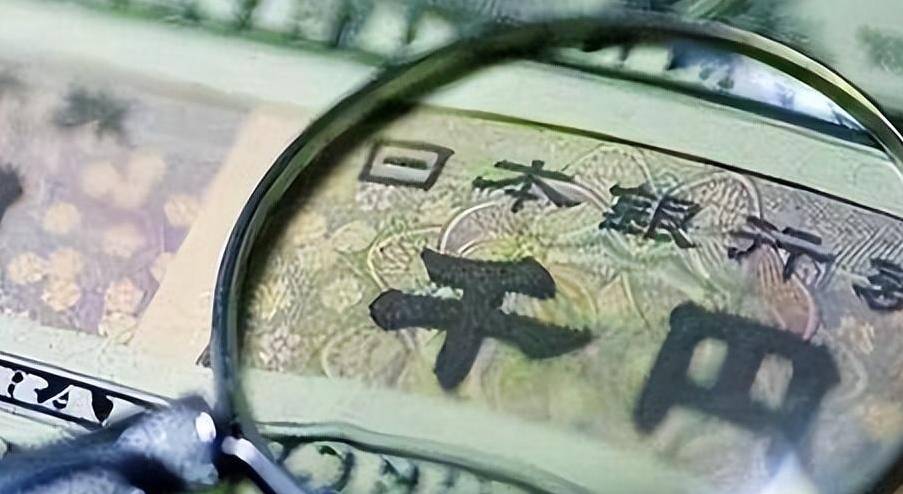- Financial Policy
- October 23, 2024
- (389) comments
Yen Hits 150 as Interest Rate Hike Looms
Advertisements
In the early hours of November 30, 2024, a statement made by Bank of Japan Governor Kazuo Ueda during a media interview sent ripples through the financial markets. Ueda hinted that an interest rate hike was "approaching" and noted that Japan's economic indicators were moving in a positive direction. This disclosure resulted in a significant appreciation of the yen, with the USD/JPY exchange rate plunging below the crucial psychological threshold of 150.
As Ueda's comments reverberated through the financial community, market attention quickly shifted to the upcoming Bank of Japan's monetary policy meeting scheduled for December. Investor sentiment turned toward the possibility of a rate increase occurring by the end of 2024 or early in the following year.
Despite the optimistic economic data coming out of Japan, Ueda was careful to express a cautious stance, especially given the prevailing global economic uncertainties. He acknowledged that the outlook for the US economy remained ambiguous, with potential tariff policy changes likely to influence Japan's economic atmosphere. Thus, while the prospect of an interest rate hike may be increasing, the Bank of Japan was committed to further evaluating both domestic and global economic conditions.
Ueda's remarks painted a picture of the Bank of Japan's strategic flexibility in the face of ongoing global economic pressures. For Japan, the foundation of economic growth relies heavily on a stable monetary policy; premature or aggressive rate hikes could send shockwaves through the economy. Nevertheless, with core inflation rates continuing to trend upwards, the Bank of Japan faced mounting pressure to consider increasing rates.
The immediate aftermath of Ueda's statement was marked by tumultuous market activity. The USD/JPY exchange rate fell precipitously, a development that signified a burgeoning market expectation surrounding the possibility of the Bank of Japan raising interest rates. Investors reacted swiftly, leading the yen to surge against the dollar, bolstered by a heightened demand for the currency.
Current forex market data underscores that the yen's recent appreciation has been largely influenced by these climactic expectations regarding interest rates. Notably, core inflation in Tokyo has exceeded the Bank of Japan's 2% target, while the cooling of the US economy diminishes the dollar's upward momentum. As a result, investors have adjusted their positions, causing an uptick in demand for the yen.

However, not all implications of a strong yen are favorable for Japan's economy. While a stronger yen might mitigate import costs, excessive appreciation could place strain on exports—particularly for Japan's manufacturing sector, which relies significantly on international markets. This creates a complex scenario for the Bank of Japan, which must navigate the delicate balance between potential rate hikes and managing the impact on the yen's exchange rate.
From a broader economic perspective, Ueda's statements not only offer a glimmer of hope for Japan's recovery but also bring to light the inherent risks involved. Since the "lost decade" of the 1990s, Japan has grappled with persistently low inflation and even deflation, pushing the Bank of Japan toward aggressive monetary easing practices, including a zero interest rate policy and quantitative easing (QE). However, as global inflation rates have risen and Japan gradually emerged from its deflationary period, these protracted easing measures now face significant challenges.
Raising interest rates also risks slowing the momentum of Japan's economic recovery. While current inflation rates might surpass the Bank of Japan's target, the underlying risks remain substantial, especially given uncertainties in the global economy. Interest rate hikes could effectively curb inflation, but overzealous increases may dampen corporate investment and consumer confidence, subsequently stifling economic growth.
The implications of anticipated interest rate hikes extend beyond the Japanese economy; they also stand to generate widespread volatility in global financial markets. Adding to this complexity, the US currently finds itself in a "pause mode" regarding its own monetary policy, with uncertainty looming over potential increases or decreases in interest rates. Divergence in monetary policy between the US and Japan could spark dramatic fluctuations in the USD/JPY exchange rate, influencing the currency trends of emerging markets around the world.
Moreover, the appreciation of the yen could amplify uncertainties in global capital flows. Investors may choose to withdraw funds from other high-risk assets in favor of purchasing safe-haven assets like the yen, potentially leading to shocks in global stock markets and other financial arenas. In a climate of global economic slowdown, the yen's strength could serve as a catalyst for renewed turbulence in international capital markets.
Japan's monetary policy has long been subjected to external pressures, especially in light of evolving global trade dynamics amidst escalating trade tensions between major economies like the US and China. Ueda's reference to the potential impacts of US tariff policies on Japan’s economy underscores the necessity for Japan to embark on deeper structural reforms within the context of a broader global economic framework.
Ongoing discussions surrounding the relationship between rising wages and increasing prices are becoming increasingly pertinent to Japan's economic narrative. If wage growth does not sustain itself, companies may resort to cost-cutting measures rather than pursuing innovation, adversely affecting Japan's competitiveness on the global stage.
As expectations for a potential interest rate hike by the Bank of Japan gradually materialize, these developments will likely exert profound effects on the yen's valuation, Japan's domestic economy, and the global financial landscape. Despite a palpable sense of anticipation surrounding a rate hike, Ueda's comments serve as a reminder that rate increases are not a panacea for all economic difficulties. Instead, such decisions necessitate careful consideration and a balancing of risks amidst the intricacies of the ever-evolving global economy.
In the months to come, as Japan's economy and the global economic landscape continue to evolve, the trajectory of the yen is poised to remain at the forefront of international market focus.